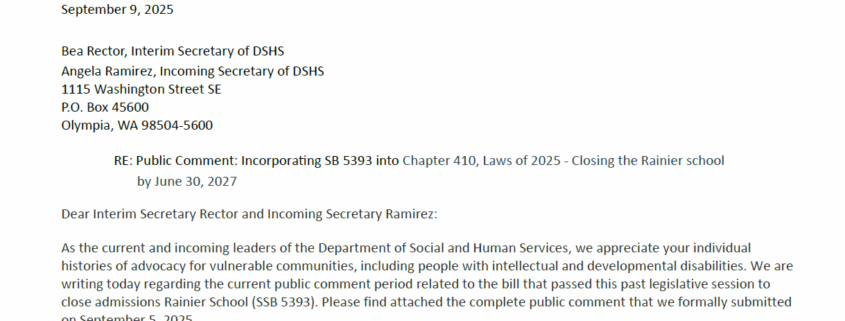RELEASE: Disability advocates letter to DSHS urges alternative campus uses for Rainier School
FOR IMMEDIATE RELEASE:
September 12, 2025
CONTACT: Stacy Dym, stacy@arcwa.org, Executive Director of The Arc of Washington State
Closing the Rainier School: Disability advocacy organizations urge DSHS Secretaries to seek alternative campus uses
SEATTLE, WA – The Arc of Washington State and seven affiliated local chapters of The Arc sent a letter this week to the interim and incoming directors of The Department of Social and Human Services (DSHS) urging them to continue their transition away from the existing, outdated institutional model for care of people with developmental disabilities. Attached to the letter, The Arc included their full answers to the four questions posed in a DSHS ninety-day public comment period that resulted from SSB 5393: Closing the Rainier School.
In their recommendations for how to mitigate the impacts of closure, The Arc reminds the state of Washington’s long history of supporting hundreds of previous residents and families during successful transitions from RHCs to community-based care over the past several decades. They cite the specific transition planning guidelines that are outlined in numerous legislative reports from 2019 through 2023 and urge the prioritization of person-centered planning. They acknowledge that while some institutions have provided necessary care in the past, we now have the capacity and responsibility to offer something better: person-centered, inclusive services that support individuals to live, work, and thrive in the communities of their choice.
Despite fervent, decades-long advocacy to close congregate institutions like Rainier School (also called a Residential Habilitation Center, or RHC) led by people with intellectual and development disabilities who are directly at-risk of institutionalization, the state legislature allowed logistical concerns to delay the closure of Rainier School and impede our progress towards a more just, compassionate, and inclusive system of care for people with developmental disabilities.
The Arc wrote in their concluding answer of the public comment:
“The Rainier School campus represents valuable state assets that can better serve Washington residents through alternative uses aligned with evidence-based practices and civil rights principles. The current campus utilization represents a significant underuse of state resources and flies in the face of current research on outcomes and civil rights protections for people with developmental disabilities. Any alternative use should maximize the productive capacity of this substantial state investment. A thoughtful transition process can honor the economic needs of Buckley, protect state employment, and redirect these resources toward other populations who could benefit from comprehensive residential services delivered in a more appropriate and effective manner.”
About The Arc of Washington State
In 1936, The Arc of Washington State was formed by parents of institutionalized children with intellectual/developmental disabilities (IDD) who believed their children deserved more – to be included in their communities and to pursue fulfillment and happiness just like everyone else. The Arc has played a pivotal role in changing the public perception of disability and demanding better opportunities for every child’s future. The Arc’s mission is to promote and protect the human rights of people with intellectual and developmental disabilities and actively support their full inclusion and participation in the community throughout their lifetimes. Learn more about The Arc of Washington State at arcwa.org.
###
DSHS Letter - Rainier Public Comment - 9.9.2025






